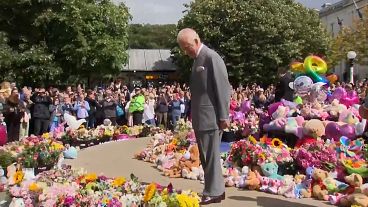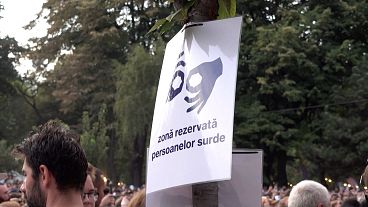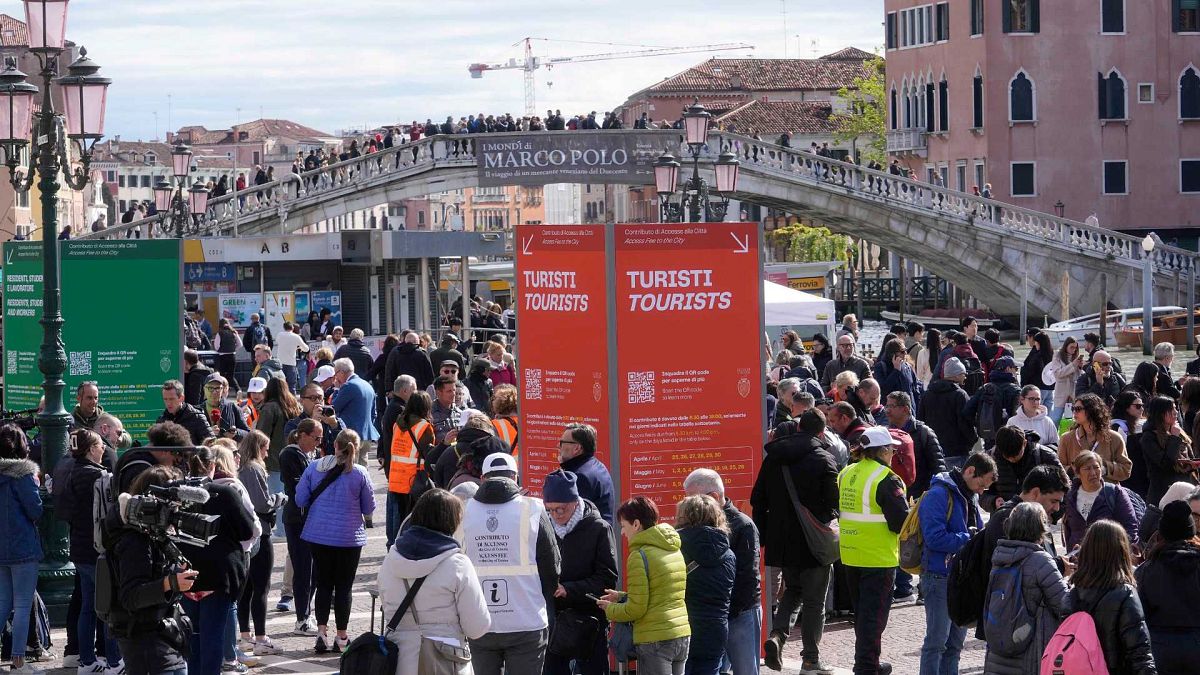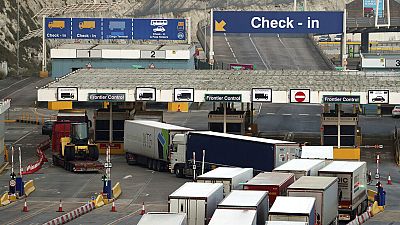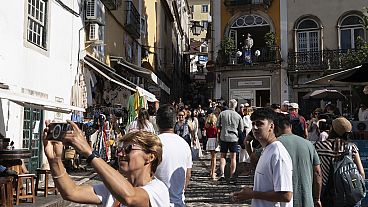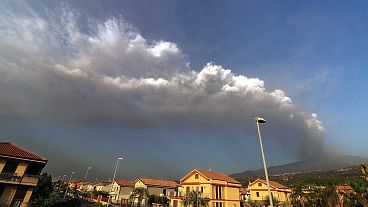Venice officials have already said this isn't the end for the daytripper fee.
Venice's tourist tax trial earned the lagoon city €2.2 million, so why is it being branded a 'failure'?
“The ticket is a failure, as demonstrated by city data,” says Giovanni Andrea Martini, an opposition city council member.
The daytripper fee drew many opponents over the years it took the city to get it up and running. After years of delays, some due to Covid, visitors have been charged €5 on 29 days this year, mostly weekends and holidays.
Authorities have said the levy will continue and could be doubled for 2025, bringing it up to €10.
Did the tax help to combat overtourism?
Over the weekend, several dozen activists gathered outside Venice's Santa Lucia train station to protest the €5 levy that they say did little to dissuade visitors from arriving on peak days, as envisioned.
Over the first 11 days of the trial period, an average of 75,000 visitors were recorded in the city. Opposition city council member Martini said that is 10,000 more each day than on three indicative holidays in 2023, citing figures provided by the city based on mobile phone data that tracks arrivals in the city.
Why is Venice charging a tourist tax?
The fee is “not a tool for making cash," the city said previously in a statement.
Aside from the costs of running the system, any proceeds from the entry fees will go towards services that help the residents of the city. These include maintenance, cleaning and reducing living costs.
When Venice imposed the long-discussed daytripper tax, it helped to stop UNESCO from "blacklisting" the city for a lack of upkeep.
Opponents of the plan say the tax has failed to make the city more liveable for residents, as intended, with the narrow walkways and water taxis as crowded as ever.
They want policies that encourage repopulation of Venice’s historic centre, which has been losing residents to the more convenient mainland for decades, including placing limits on short-term rentals.
There are now more tourist beds in the canaled historic center than official residents, whose numbers stand at an all-time low of 50,000.
How many people paid Venice's tourist tax and how much money did the city make?
Over the last 2.5 months, nearly 450,000 tourists have paid the tax, raising revenues of some €2.2 million euros, according to AP calculations based on data supplied by the city.
Officials said the money would be used for essential services, which cost more in a city traversed by canals, including rubbish removal and maintenance.
How much is Venice's tourist tax in 2025?
The city’s top tourism official, Simone Venturini, has indicated that the levy will be continued and reinforced.
A proposal to double the fee to €10 is being considered for next year, a city spokesman said.
“Wanting to raise this to €10, is absolutely useless. It makes Venice a museum," Martini, the city council member, said.
How many people were fined for not paying the tax?
Officials warned of steep fines for those who dodged the tax, but in the end none were given during checks at entry points. These varied from a low of 8,500 to a high 20,800 a day over the period.
City officials say that is because they wanted a soft launch. Critics say it resulted in a downward trend in payments as visitors understood there was no risk in dodging the payment.
Who has to pay Venice's tourist tax?
The levy was not applied to people staying in hotels in Venice, who are already charged a city tax.
Exemptions also applied to children under 14, residents of the region, students, workers and people visiting relatives, among others.



